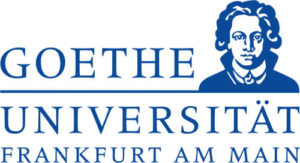![MAIN [colour, horizontal, light bg] Kopie copy](https://www.memorystudiesassociation.org/wp-content/uploads/2017/08/MAIN-colour-horizontal-light-bg-Kopie-copy-300x73.png)

Critical Thinking on Memory and Human Rights Second Annual Workshop
Supported by the Memory Studies Association
and the Frankfurt Memory Studies Platform
The “Critical Thinking on Memory and Human Rights” working group of the Memory Studies Association launched with an inaugural workshop in Dublin, Ireland, in February 2019, followed by a series of panels at the Third Annual Memory Studies Association Conference in Madrid, Spain, in June 2019. We are excited to launch a new call for papers for our second annual workshop at the Johann-Wolfgang-Goethe-
Universität Frankfurt am Main, Germany, on 20-21 February 2020. The workshop is supported by the Memory Studies Association and the Frankfurt Memory Studies Platform.
In this workshop, we aim to map the field of memory and human rights. Through discussions in our organizational meetings with the larger group in Dublin and Madrid, and now in Frankfurt, we try to understand the origins and expansion of the relationship of memory and human rights globally. The questions we pose are meant to help us understand the intersection of memory and human rights from its historical, structural and geo-political angles.
We are excited to welcome Sara Dybris McQuaid, Associate Professor at the School of Communication and Culture at Aarhus University, Denmark, as our workshop’s keynote speaker.
We invite participants to address the following themes in relation to Memory and Human Rights:
- Ideology and narratives – Why, historically speaking, has the intersection of memory and human rights occurred? How has this intersection developed into a set of beliefs and narratives that has become normative and ideological? What are the promises and possible pitfalls of such interactions? What is the human rights memorialization agenda, how has it developed, and where is it heading?
- Agency – Who is promoting this relationship, to what end(s), and with what success? How does agency shape and frame past human rights abuses? What is the relationship between supranational, national and local brokers? What is
the relationship between how human rights advocates use and promote memory as opposed to nationalist elites and state-sponsored bureaucratic apparatuses? - Practice – What practices are set in place to reinforce the link between human rights and memory? Here we seek to understand what practices, such as commemorations, protests, parades, art exhibits, and others, are set to
enforce the link between the human rights worldview and memory for the sake of promoting peacebuilding, reconciliation and non- occurrence of violence. How do those practices differ from nationalist or state-sponsored performances of memory? - Artefacts and material culture – How is material culture employed to promote the human rights memorialization agenda? What is the material embodiment of the intersection of memory and human rights? How are
museums, artefacts and other material objects used and framed to promote the human rights memorialization agenda, and what is their impact on the ground?
We invite “Critical Thinking on Memory and Human Rights” working group members as well as those who wish to join us in the effort to better understand the intersection of memory and human rights to submit proposals for our Frankfurt workshop. Panel suggestions or individual papers are welcome! For this workshop, participants are not obliged to be members of the Memory Studies Association.
When applying, please state in which, if any, of the thematic panels you would like to participate. Abstracts should be no longer than 250 words. Please include a biographical note of up to 150 words. Please note that participants will be responsible for covering their own travel and
accommodation costs for the duration of the workshop.
Submission Deadline
20 October 2019, 11:59pm Central European Time
Please send a .doc or .pdf document to:
criticalhumanrightsandmemory@gmail.com.
Late submissions will not be considered.
Notification of Results
20 November 2019